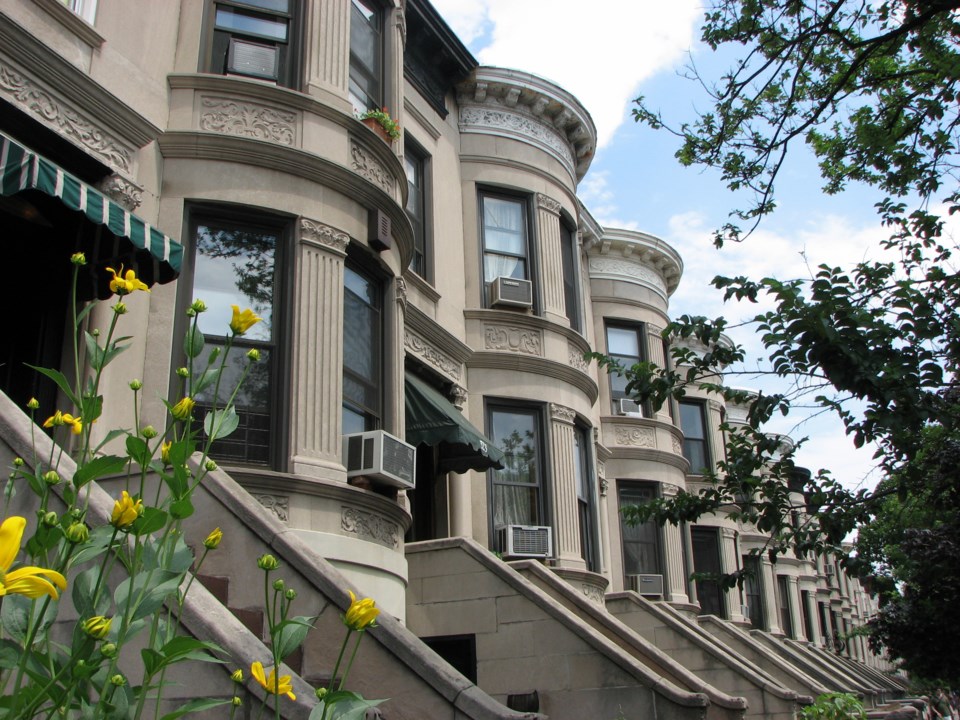By Adrienne Roberson
City Council Member Chi Ossé recently introduced new legislation that would require landlords to pay all broker fees in New York City unless the renter has “hired” the broker. He described the bill as “common sense.” But it’s really not that simple, and the Council Member and his colleagues seem to be willfully ignoring that.
My views are informed by my multiple perspectives on this issue. I’m a transplant from Ohio who navigated the New York City rental landscape when I moved here 17 years ago. I’m a real estate agent who lives in Council Member Ossé’s district in Crown Heights, and I’m a recently admitted graduate student at Columbia University’s Graduate School of Architecture, Planning, and Preservation to study Urban Planning, concentrating in Community Development. My focus will be primarily on public planning policies to address inadequate housing in lower-to-moderate income neighborhoods.
Here are three reasons why this legislation would be a step backward for the City, and especially for renters in Brooklyn.
First of all, even Council Member Ossé acknowledges his legislation will lead to increased rents if the landlord is forced to pay the cost of a broker fee. Of course, this already happens in some apartments. They are known as “no fee” listings, which just means the landlord pays the broker fee. In virtually any building, monthly rent is more expensive if the landlord is paying that cost because they amortize the broker fee over the length of the lease, passing the cost right back to the tenant over time.
The Council Member wants these higher “no fee” rents to become the norm in every building citywide. He claims this would make it easier for renters because it would spread their housing costs out monthly rather than requiring more cash upfront.
As City renters know, the vast majority of landlords require a prospective tenant to have an annual income of least 40 times the cost of the monthly rent. Many renters end up applying for and living in apartments where they just meet that 40x requirement.
So, let’s say you’re a registered nurse (RN) or transit supervisor making $100,000 per year. You’re looking for apartments up to $2,500. But under Council Member Ossé’s bill, your monthly cost for the same unit might become $2,750 or more. And just like that, you’re disqualified from apartments that you otherwise would have been able to secure because now you need $110,000 in annual income.
Also, this new $2,750 per month unit that incorporated the broker fee, is now locked in as a base rent for the annual rent increase. Most tenants stay in their units for more than one year, so for anyone renewing their lease they will be paying the broker fee more than once. The landlord will not lower the rent after the broker fee has been paid. This additional revenue does not go to the broker, only to the landlord.
Next, Council Member Ossé claims that his legislation will not limit the commission of working-class real estate agents across the City. Again, the Council Member makes it sound so simple by saying that all agents and brokers will just be paid by landlords now. But this ignores the fact that many of the services that we provide are already services for renters, even if that renter has not explicitly “hired” us.
Each summer, agents and brokers guide new arrivals as they complete their apartment search and application process — not because they explicitly hired us, but just because they saw our contact info on a listing. Many renters need help learning about each building’s requirements, which trains they want to be near to commute, or the difference between a private and managed building. Or we, as the agents, might be fighting for the family that has two working parents with good cash flow but poor credit and a low FICO score due to a medical emergency. That’s where we provide value.
Under Council Member Ossé’s bill, many agents and brokers who provide that value for renters must then worry about whether they will actually receive a fair commission for their work. Entry-level rental real estate agents in New York City only make around $52,000, substantially lower than the million-dollar commissions advertised in real estate reality shows that primarily focus on luxury sales. So, to say that this bill “won’t cap commissions” is misleading.
Finally, this legislation seems to blame broker fees for a housing crisis that was really caused by government policy failure — and that doesn’t make sense. Rents are still rising in New York City and particularly in Brooklyn, because of a housing shortage that got worse because City and State elected officials won’t approve policies that increase rental housing production. Producing more housing will lead to prices softening in the rental market as supply increases; that’s basic economics. Instead of regulating the broker fees, Council Member Ossé could help renters far more by pushing for zoning and legislative changes that actually incentivize the construction of permanently affordable housing across the city.
Mayor Eric Adams recently announced the new Office Conversion Accelerator initiative under the Housing, Economic Development, and Workforce department to help developers convert old office buildings into residential ones; and the Midtown South Mixed-use Plan to rezone large commercial areas in Manhattan to include much need housing. These are the kinds of initiatives that the city should continue to implement to encourage more housing construction and increase supply.
Here’s the bottom line. If this legislation is passed, three things will happen: Many apartment rents will go up, many working-class real agents will struggle to get a fair commission, and the real problem of the housing shortage will continue to be ignored.
That’s not a good outcome for Brooklyn renters — and it’s not so “common sense.”
Adrienne Roberson is a real estate agent with Douglas Elliman.




